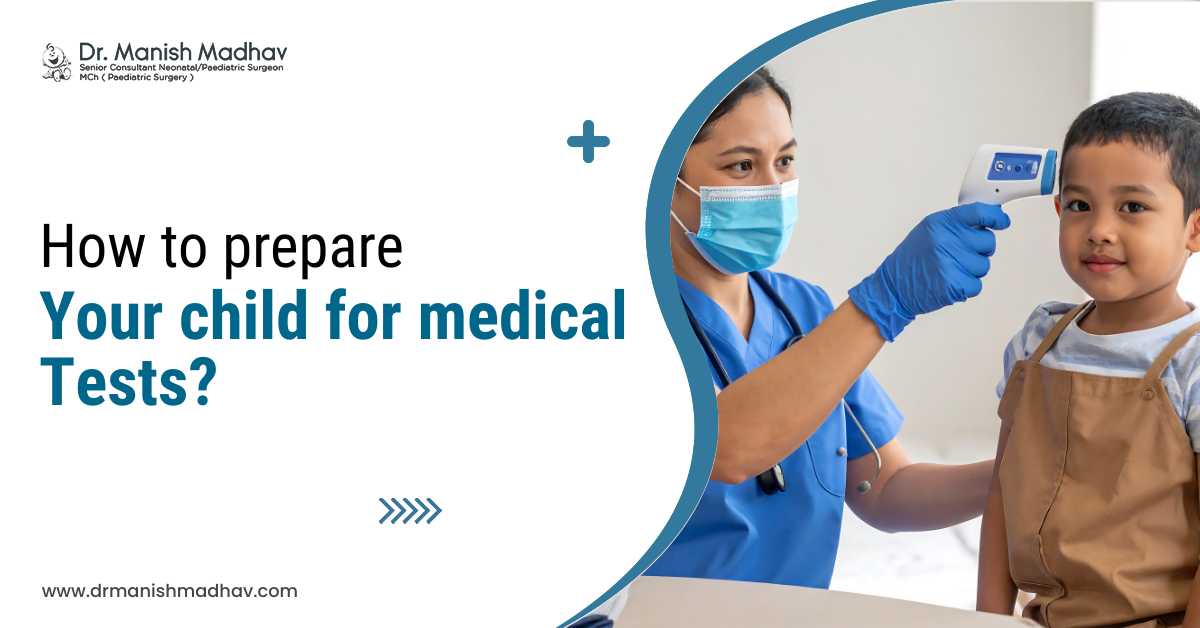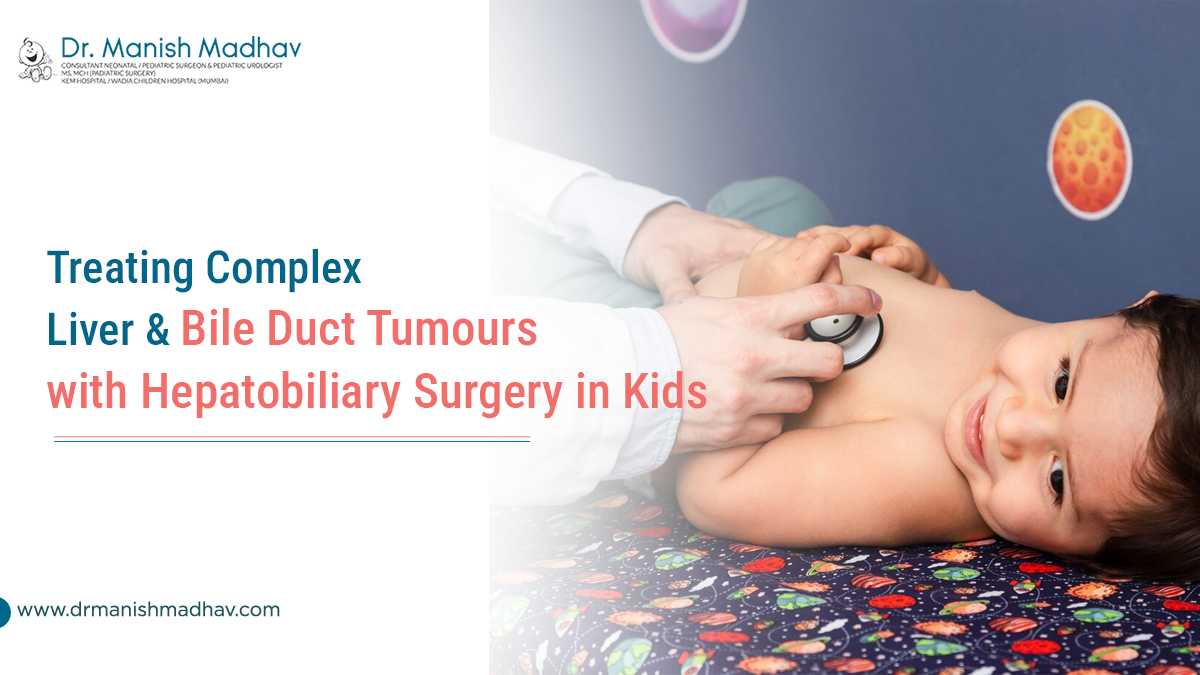Liver and bile duct tumors are an uncommon and particularly difficult category of pediatric cancer. Tumors complicate how the liver and bile duct function. The liver produces bile, a fluid that facilitates digestion. And, small tubes called bile ducts transmit bile through the liver, from whence it travels to the gallbladder and eventually to the small intestine.
These tumors need to be diagnosed early and treated with timely surgery, usually hepatobiliary surgery. For effective hepatobiliary surgeries in Siliguri, consult the leading pediatric surgeon in the city, Dr. Manish Madhav. Because of the smaller anatomical structures in children and other factors, hepatobiliary surgery needs even more precision, planning, and interdisciplinary cooperation.
Childhood Liver and Bile Duct Tumors
Hepatocellular carcinoma in children (HCC) is an uncommon cancer that accounts for 0.5% to 1.0% of all malignancies in children. Hepatoblastoma is the most prevalent malignant liver tumor in children, usually affecting those under the age of three. Though it is more frequent in adults, older children and adolescents can still develop hepatocellular carcinoma.
The most common malignant cause of obstructive jaundice in children is biliary rhabdomyosarcoma. Usually, the most prevalent first sign here is jaundice. Less than 60 cases of common bile duct cancer (CBD) have been recorded globally, making it an uncommon condition.
In children, rhabdomyosarcoma (RMS) is the most prevalent biliary tree tumor. Children rarely develop bile duct tumors, such as choledochal cysts with cancer transformation or biliary tract carcinomas. But when they do, they provide complex surgical challenges. See your kid at one of the top hepatobiliary surgeon doctors in Siliguri.
Why Hepatobiliary Surgery is Vital
Surgery is still the mainstream treatment for bile duct and liver tumors in pediatric patients. In hepatobiliary surgery, the bile ducts and/or liver tumors are removed while as much healthy liver tissue is left intact.
Pediatric surgeons may provide more specialized surgical approaches needed for difficult tumors that are big, involve numerous lobes, or are located close to key blood arteries. Surgeons need to be cautious enough to limit blood loss, maintain growth potential, and promote general development after surgery.
A multidisciplinary team of pediatric oncologists, radiologists, hepatobiliary surgeons, anesthesiologists, and critical care experts cooperates. This cooperation is essential to the success of hepatobiliary surgery in children.
Doctors may order tests like blood tests, and imaging, such as high-resolution MRI, CT scans, ultrasounds, and even PET scans. Liver transplantation may be considered a vital treatment in rare cases. Every treatment approach for liver and bile duct tumors in children has its own advantages.
Children usually need close observation in a pediatric critical care unit following liver or bile duct tumor surgery. Liver dysfunction, infections, and bile leakage are examples of postoperative side effects. Most pediatric patients, however, recover well and return to their regular activities in a matter of months with the right treatment.
The nature, margins, and stage of the tumor in the liver or bile duct will determine if adjuvant treatment is important. Routine imaging and blood testing are part of long-term follow-up to check for recurrence. The best treatment for children with liver and bile duct tumors is at specialized pediatric liver or cancer facilities due to the complexity of these cases.
Complex liver and bile duct tumors in kids are difficult to treat and need careful planning, precise surgery, and sensitive care. The key factor in the battle against these uncommon pediatric tumors or cancers is still hepatobiliary surgery. Get your children optimum care and outcome with hepatobiliary surgeries in Siliguri under expert supervision.






